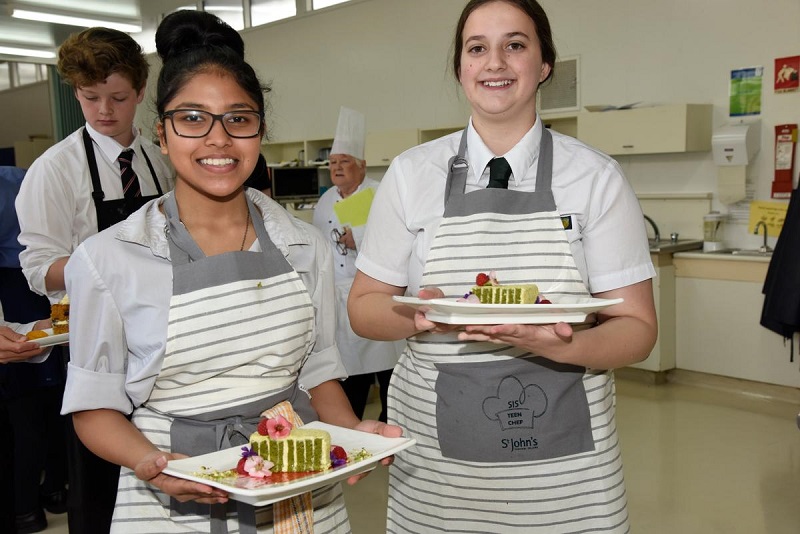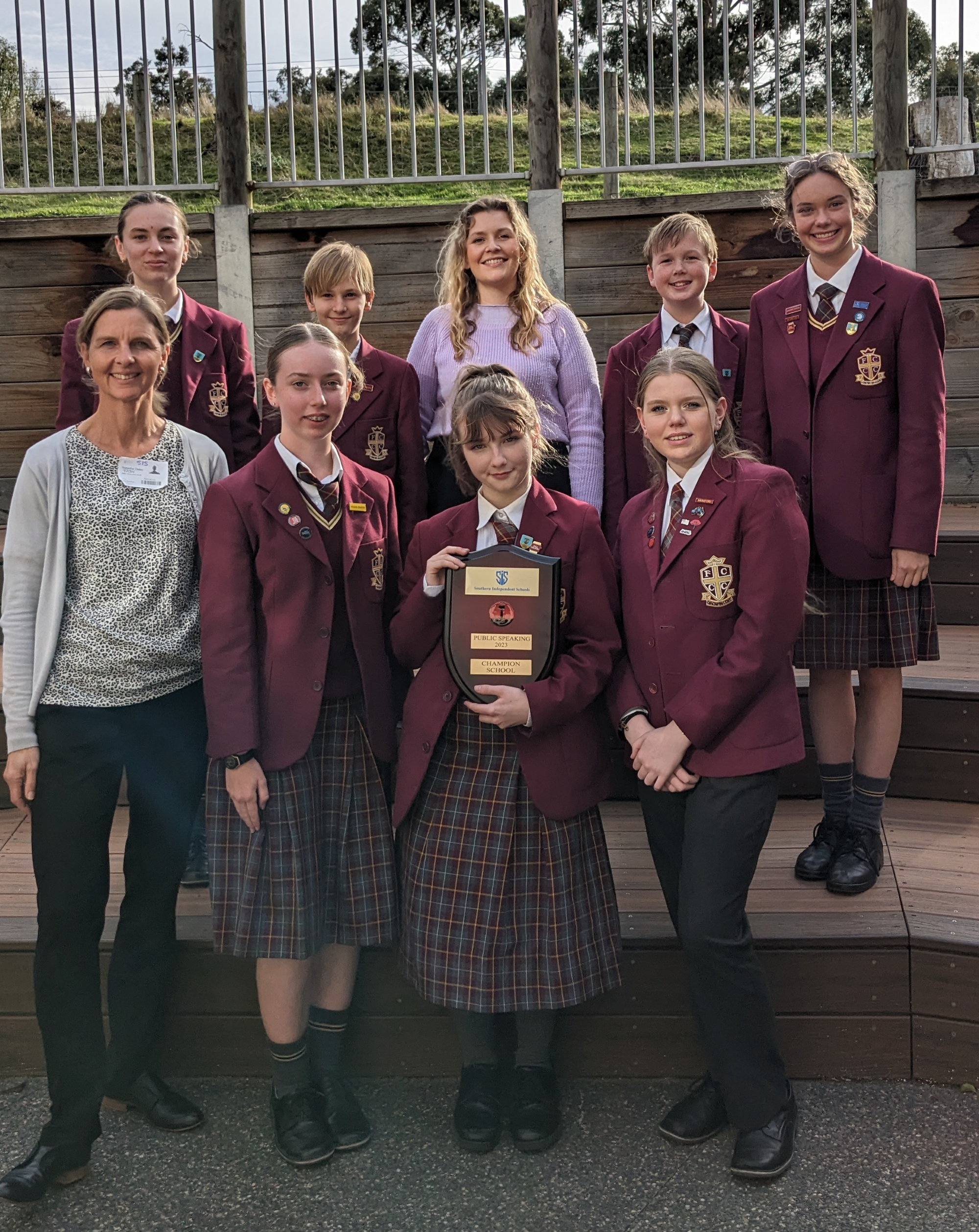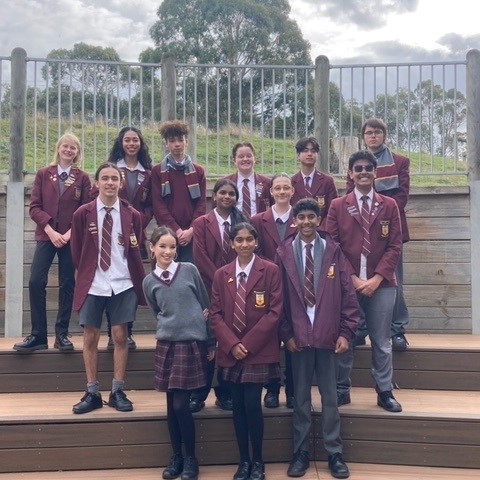TEEN CHEF
Students presented many professional dishes at this year’s SIS Teen Chef competition held at John Paul College’s new Food Technology venue.
The ACF judges were particularly impressed with the flavours that were introduced, given the theme ‘Australian with an Indigenous accent’.
Congratulations to all students involved and particularly Hillcrest College, who received the SIS shield for best overall school.
Medals were also awarded to students from the top three schools:-
1st – Hillcrest College - Bush Spiced Barramundi with Sweet potato puree, Warrigal greens & Coconut sauce and Flowering Gum Dessert
2nd – St Francis Xavier Beaconsfield - Grilled Barramundi & Warragul Greens; Finger Lime & Lemon Syrup Cake
3rd – Balcombe Grammar – Warrigal Greens pesto; Key Lime Pie

Best Dessert: Flinders College Tyabb - “Indigenous spiced trifle”

Australian Culinary Federation judging







